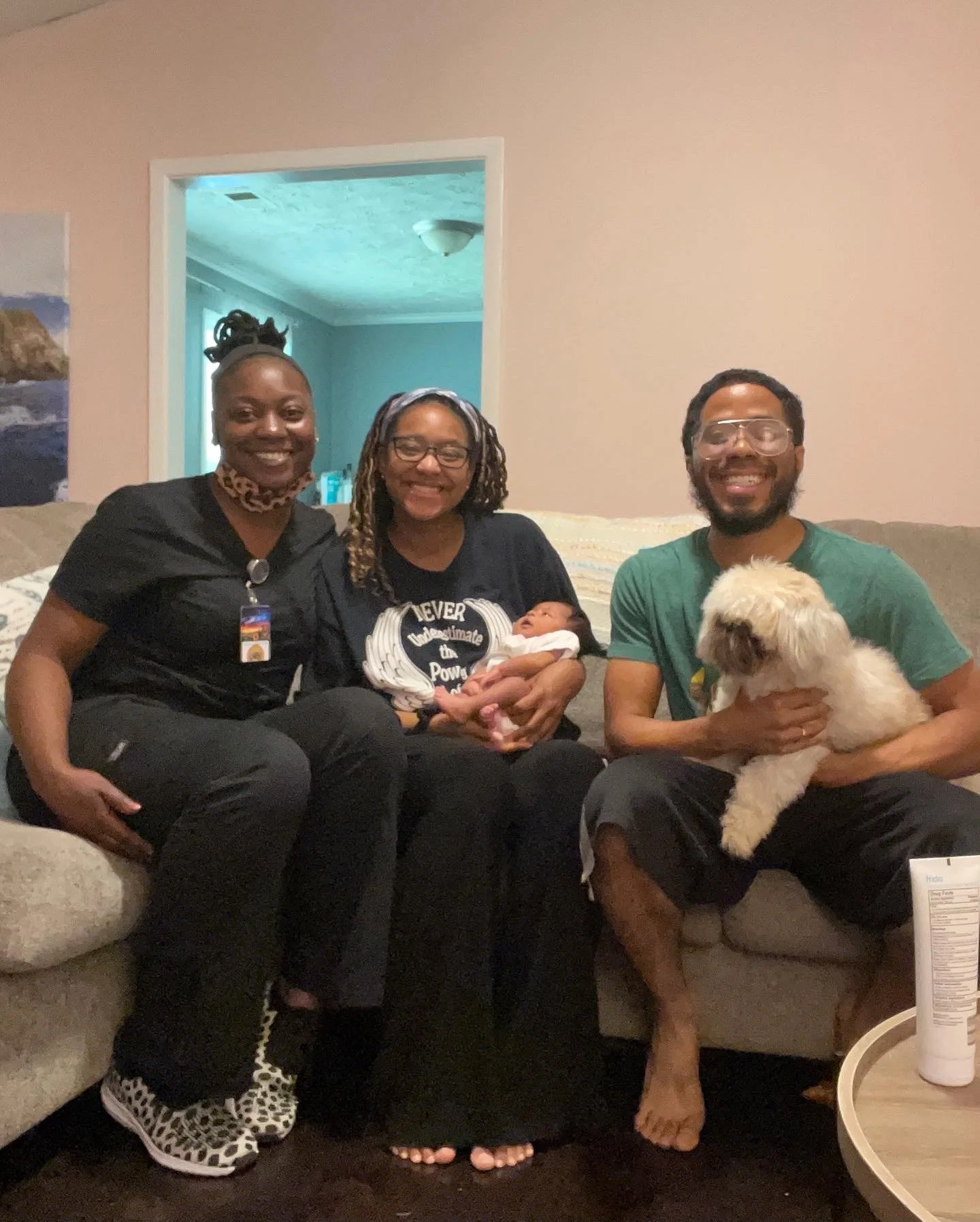The benefits of doula care for C-section births
Doula care is often associated with low intervention, medication free, home births, and it’s true that parents who seek doula support are often those looking for a more “natural” birth. However, mothers who plan to give birth by cesarean section (c-section), whether for personal preference or medical necessity, can also greatly benefit from doula support before, during, and after birth. Here are some reasons why doula care can be highly valuable for c-section births.
Reassurance before birth
Many parents feel nervous about the prospect of a c-section, for a range of reasons: the surgery, pain levels, separation from the baby, potential difficulties establishing breastfeeding, and so on. A doula with experience of c-section births will be able to offer reassurance to parents by taking the time - often not offered by doctors - to explain how the procedure will go, and what is likely to be possible immediately before and after delivery in terms of partner presence, breastfeeding, skin-to-skin, and any other preferences that parents may have. They can also talk through the different medical possibilities, such as spinal tap versus epidural, and classical incision versus low transverse.
Doula Shanille of Naturally nurtured birth services in Tennessee supports her client after birth in the hospital.
Advocacy
Although in many countries doulas are not typically allowed in theater or the recovery room, a doula can still help parents to advocate for themselves by helping them establish questions to ask, requests to make, and what their rights are. Doulas may also be able to accompany parents to prenatal appointments if desired. For example, they can let parents know that they can express whether or not they wish for their baby to be given formula while mom is in recovery, if they prefer their partner to stay with them or with baby when the incision is being sewn up, to establish whether a clear curtain is available to allow them to watch the baby being born if desired, and other things parents might not have considered.
Hospital support post-delivery
In most cases, a c-section requires a longer hospitalization than a vaginal delivery, and mobility can be reduced by a catheter as well as by physical discomfort post-surgery. Although nurses generally offer to help with things like changing the baby’s diaper and even accompanying mom to the bathroom, they are very busy and their availability is limited. If your partner is at home taking care of older siblings or is unable to be at the hospital for any other reason, it can be great to have a doula available to help you out after delivery. A doula could even hold baby for a while so that mom can take a nap, which can be challenging in a hospital environment.
Breastfeeding support
Sometimes parents giving birth by c-section face additional challenges in establishing breastfeeding, as there is often a short period in which mother and baby are separated after birth, and mobility challenges can make it hard to find optimal feeding positions. Doulas can help here, too. A doula with experience in lactation support can help mom find a position that is comfortable and effective, as well as advocating for her to be able to feed baby as soon as possible. If a doula is unable to provide the required support themselves, they would be able to connect her with a lactation consultant.
Postpartum support at home
Doula Lakesha Quarles of Sunflower Births LLC in South Carolina supports the entire family before, during, and after birth.
A postpartum doula can be of great value once home from the hospital, too. They can provide the same support that they can offer in the hospital, as well as being able to help out in a variety of ways in the home context - helping with chores, bringing you groceries, or just offering a listening ear. They can also help identify any issues that require further medical attention, and are particularly valuable in being able to pick up on indications that the birthing parent might need additional mental health support. In this case, a doula would be able to put parents in touch with the relevant professionals.
Support for your partner
Many of the modes of support mentioned above can also apply for your partner. The delivery and postpartum period can provoke anxiety for partners, too, and the doula can act as a knowledgeable and sympathetic point of contact. It can be a relief for partners to know that there is an additional person sharing the load in the often stressful and overwhelming period before, during, and after a baby is born by c-section.
Doulas are not just for assisting birthing parents who want a med free, all natural home birth - although they can certainly be great for that! They can help with all types of deliveries, and the services they can provide extend far beyond backrubs and deep breathing assistance during labor. Doula care can be transformative for mothers giving birth by c-section, allowing parents to make the most of the special newborn period by helping out with the challenges of c-section deliveries.
Gina Dadaglo
Gina is a writer, editor, and mom of three young kids, living in Paris, France. She particularly enjoys writing on topics related to motherhood and parenting, justice and equity, and the ways that culture shapes beliefs and practices. Her hope is to use the power of the written word to tell stories that help people to see things in new ways.



